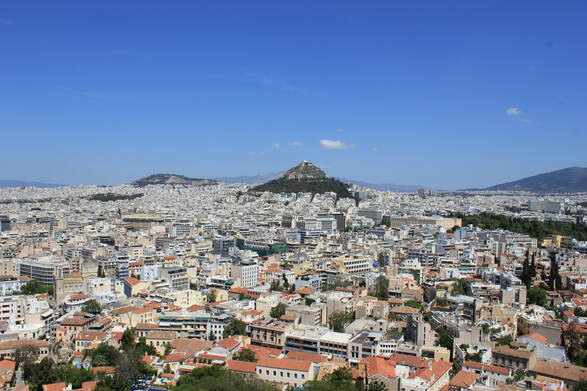Future of Greece's Youth
|
Greece’s Brain Drain
Kleo Moditsi is part of the most recent Greek diaspora. Moditsi lives in the United States and is attending graduate school at American University studying international development. She came to the US as a teenager for her father’s job. She stayed for the expanded opportunities. The 2008 global recession hit Greece especially hard. Articles about the European Union's bailouts do not cover the aftermath for young Greeks trying to make their way in the world. Prior to 2010, two previous waves of Greeks migrated to the United States, especially during and post the First World War from around 1890 to 1924 and then 1968-1979. However, the third and ongoing wave of people leaving Greece have a defining difference: they are more likely to be young and highly educated. This is known as a “brain drain,” a process by which highly qualified workers depart for better markets. In Greece, a country with more than 50,000 unskilled refugees living in temporary camps according to the International Rescue Committee, the brain drain will have lasting effects on Greece’s economic stability. Not to mention that other nations are benefitting from the best talent coming out of Greece’s top universities. Since public university in Greece is free, this means that highly educated individuals either look abroad for post-graduation employment, or end up under employed. |
“A lot of my friends back in Greece struggle to find opportunities in their fields,” said Moditsi. “Many end up underemployed in tourism.”
Tourism is a significant portion of Greece’s economy. The country of 11 million citizen gets over 33 million tourists per summer. Tourism provides 18 percent of the gross domestic product according to the CIA World Factbook.
Yet, most young Greeks are struggling to make a living.
Minimum Wage Doesn’t Cut It
In recent years Greece has suffered from extremely high levels of youth unemployment. According to Trading Economics, youth unemployment in Greece is currently around 40 percent. Youth unemployment in Greece reached an all time high at over 60 percent in early 2013, with the lowest levels of 20 percent in May of 2008.
Moditsi reveals that even Greeks lucky enough to find jobs are not able to live off of their small salaries.
Since Greece is part of the eurozone the country has a minimum wage standard of about €684 a month. The average monthly salary for a Greek living in Athens is €700, according to Check in Price. What’s worse is the rising cost associated with living in Athens.
Tourism is a significant portion of Greece’s economy. The country of 11 million citizen gets over 33 million tourists per summer. Tourism provides 18 percent of the gross domestic product according to the CIA World Factbook.
Yet, most young Greeks are struggling to make a living.
Minimum Wage Doesn’t Cut It
In recent years Greece has suffered from extremely high levels of youth unemployment. According to Trading Economics, youth unemployment in Greece is currently around 40 percent. Youth unemployment in Greece reached an all time high at over 60 percent in early 2013, with the lowest levels of 20 percent in May of 2008.
Moditsi reveals that even Greeks lucky enough to find jobs are not able to live off of their small salaries.
Since Greece is part of the eurozone the country has a minimum wage standard of about €684 a month. The average monthly salary for a Greek living in Athens is €700, according to Check in Price. What’s worse is the rising cost associated with living in Athens.
“Athens is a bit expensive and rents have gone up because of AirBnb,” explained Nikolia Apostolou, a freelance journalist based out of Athens.
As part of a foreign investment initiative, Greece has created a “golden visa.” In exchange for €250,000, foreign entrepreneurs can purchase property in Greece and receive a five-year renewable visa.
As part of a foreign investment initiative, Greece has created a “golden visa.” In exchange for €250,000, foreign entrepreneurs can purchase property in Greece and receive a five-year renewable visa.
|
Apostolou explained that many of those properties were once affordable apartments buildings that were converted into AirBnbs for tourists.
“It’s incredibly hard to find affordable housing in Athens,” said Moditsi. “A lot of young people live at home with family or relatives, which makes it harder for young Greeks from more remote villages to advance.” Approximately one third of Greece’s population lives in the metropolitan area surrounding the capital city of Athens. The housing crisis is becoming more and more dire each day, driving more and more Greeks to see opportunities outside of Greece. Hope Abroad Moditsi doesn’t plan on staying in the US following graduation. But she also don’t plan on returning to Greece. “It’s sad, because I love my country,” said Moditsi. “But I can’t go back there. Not right now at least.” Like many, Moditsi hopes that the economic situation will continue to improve. But until then she’s concentrating on her studies in the US and future jobs in other countries in the EU. |


